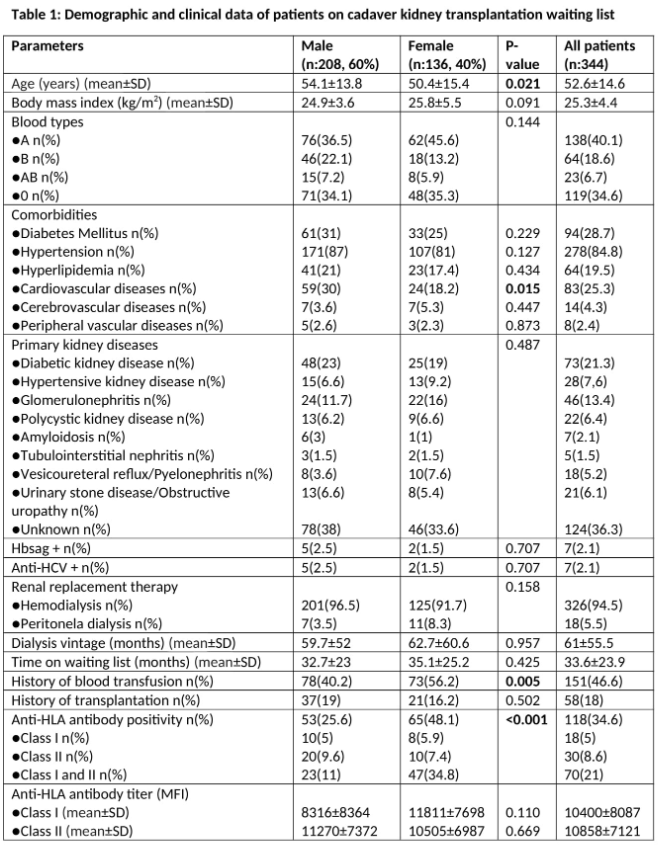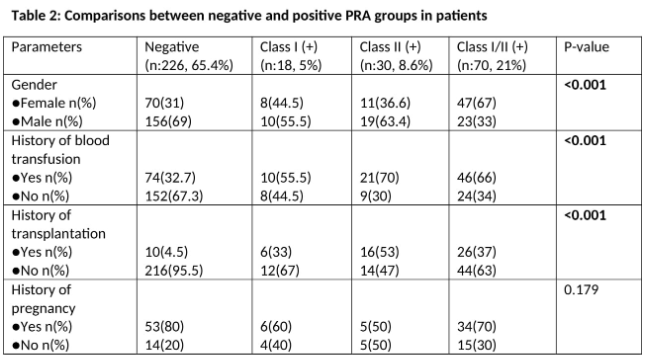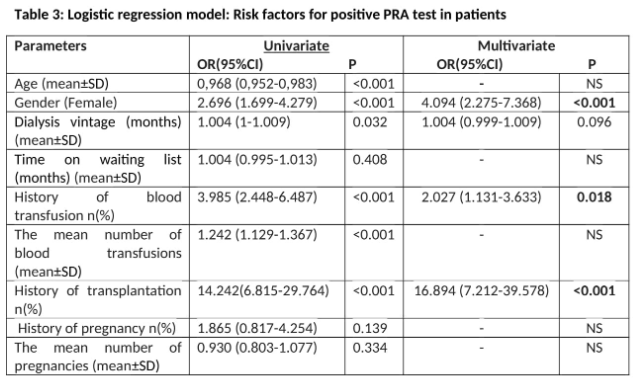Clinical features and sensitization risk factors in patients awaiting kidney transplantation: A single center experience
Siyar Erdogmus1, Zeynep Kendi Celebi1, Burak Sayin1, F. Nurhan Ozdemir Acar1, Emre Karakaya2, Mehmet A. Haberal2.
1Nephrology, Baskent University, Ankara, Turkey; 2Transplantation, Baskent University, Ankara, Turkey
Introduction: Kidney transplantation (KTx) is an effective replacement therapy for the majority of patients with end-stage kidney disease because of improved quality of life and reduced mortality risk compared with maintenance dialysis. Due to the insufficient supply of donor organs for transplantation, every year the number of patients on KTx waiting list is increasing. Evaluation of the KTx candidate's clinical and sensitization status is important to decide the appropriate renal replacement treatment. In this study, we aimed to analyze demographic and clinical features, laboratory and sensitization risk factors of patients on the KTx waiting list in our center.
Methods: Patients on the KTx waiting list at Baskent University School of Medicine, Ankara Hospital by January 2020 were evaluated. Data on demographics, comorbidities, treatment characteristics and immunologic profiles were collected. PRA screening and definition tests were studied for class I (A, B, and C) and class II (DR, DQ) antigens with Luminex from waitlisted patients every one year.
Results: A total of 344 potential KTx on cadaveric waiting list were analyzed. The mean age of the study population was 52.6±14.6 years and most of them were male (60%). Mean time on cadaveric waiting list and dialysis vintage were not significant between men and women patients (32 vs. 35 months, 59 vs. 62 months, respectively, p>0.05). Class I and/or II anti-HLA antibody positivity was detected in one third of our patients. 48% of women and 25% of men had anti-HLA antibodies (p<0.001) (Table 1). Transfusion (p<0.001) and transplantation (p<0.001) were associated with anti-HLA antibody positivity (Table 2). Logistic regression analysis showed gender (female) (OR: 4.094, 95% CI 2.275-7.368, p<0.001), history of blood transfusion (OR: 2.027, 95% CI 1.131-3.633, p=0.018) and history of transplantation (OR: 16.894, 95% CI 7.212-39.578, p<0.001) are independent risk factors of positive PRA (Table 3).
Conclusion: Sensitization is an important problem in our KTx waitlisted patients. Sensitization by transfusion and transplantation has a significant impact on development of anti-HLA antibodies. Updates of organ allocation system considering sensitized candidates and strategies to expand cadaveric donor pool and donation rates are needed to increase deceased donor KTx in Turkey.
Keywords: Anti-HLA antibodies, Sensitizing events, Kidney transplantation waiting list



There are no comments yet...